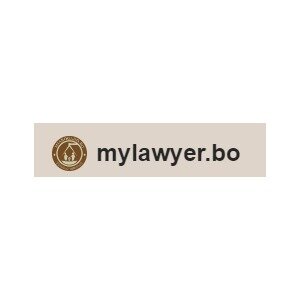Best Drunk Driving Lawyers in Sucre
Share your needs with us, get contacted by law firms.
Free. Takes 2 min.
List of the best lawyers in Sucre, Bolivia
About Drunk Driving Law in Sucre, Bolivia
In Sucre, Bolivia, drunk driving is a serious offense that can carry severe consequences. Like many other parts of the world, Bolivia enforces strict laws to deter individuals from operating a vehicle while under the influence of alcohol. The legal blood alcohol concentration (BAC) limit in Bolivia is generally 0.05% for drivers. This limit is even lower for certain categories of drivers, such as commercial and professional vehicle operators. Bolivia's approach to drunk driving emphasizes prevention and rehabilitation, along with penalties that can include fines, license suspension, and imprisonment.
Why You May Need a Lawyer
There are several situations in which an individual in Sucre might require legal assistance concerning drunk driving:
- Facing criminal charges for drunk driving: If arrested for DUI, navigating the legal system without professional help can be challenging.
- License suspension or revocation: Legal guidance is essential if you are at risk of losing your driving privileges.
- Involvement in an accident: Legal representation can help determine liability and reduce potential civil or criminal consequences.
- Challenging the accuracy of a BAC test: A lawyer can evaluate the validity of the test and ensure that proper procedures were followed.
- Multiple offenses: Penalties escalate with repeat offenses, so having a lawyer can be critical in minimizing consequences.
Local Laws Overview
The primary legislation involving drunk driving in Sucre is encapsulated within Bolivia's national traffic laws, which stipulate the following key points:
- Blood Alcohol Limit: The BAC limit for most drivers is 0.05%, and zero tolerance applies to drivers of public transport or hazardous merchandise vehicles.
- Penalties: Consequences for drunk driving may include hefty fines, license suspension for a period of up to 5 years, community service, and imprisonment of up to 1 year.
- Enforcement: Law enforcement frequently conducts sobriety checkpoints and employs breathalyzer tests to detect impairment.
- Rehabilitation programs: Offenders might be required to attend educational and rehabilitation programs designed to prevent reoffense.
Frequently Asked Questions
What is the legal BAC limit in Bolivia?
The legal BAC limit in Bolivia is 0.05% for most drivers, while professional drivers must maintain a 0.0% BAC.
What are the penalties for a first-time DUI offense in Sucre?
First-time offenders can face fines, possible suspension of their driving license, mandatory community service, and educational courses.
How is BAC tested by authorities?
Authorities typically test BAC using breathalyzers during roadside checks or after a traffic incident.
Can I refuse a breathalyzer test?
Refusing to submit to a breathalyzer test can result in automatic penalties, including license suspension and fines.
Are there increased penalties for higher BAC levels?
Yes, penalties can be more severe for significantly higher BAC levels, including longer license suspensions and possible imprisonment.
What should I do if I am arrested for drunk driving?
Seek legal representation immediately to understand your rights and explore defenses available for your case.
Is it possible to appeal a drunk driving conviction?
Yes, a conviction can be appealed, but it is advisable to work with a legal expert to understand the chances of success.
Will a DUI affect my insurance premiums?
Yes, a DUI conviction often results in increased insurance premiums as it indicates higher risk to insurers.
Do drunk driving laws apply equally to foreigners?
Yes, non-citizens are subject to the same laws and penalties as Bolivian nationals.
Can I drive after attending a party with friends if I only had a couple of drinks?
It's safest to avoid driving after consuming any alcohol. Even small amounts can place you over the legal BAC limit.
Additional Resources
Individuals seeking further information or assistance can find valuable resources through the following:
- Bolivian National Police: They can provide official guidance on traffic laws and enforcement.
- Local legal aid organizations: Many offer free or low-cost legal advice for those needing representation.
- Ministry of Government of Bolivia: Offers resources and contacts for more information about national traffic laws.
- Non-Governmental Organizations (NGOs): Some NGOs focus on road safety and might provide educational resources.
Next Steps
If you need legal assistance for a drunk driving case in Sucre, Bolivia, consider taking the following steps:
- Contact a qualified local attorney specializing in traffic law and DUI offenses.
- Gather all relevant documentation, including traffic tickets, police reports, and any correspondence received regarding your case.
- Attend all scheduled court appearances to avoid default judgments and additional penalties.
- Consider enrolling in a rehabilitation or educational program to demonstrate commitment to responsible driving behavior.
Lawzana helps you find the best lawyers and law firms in Sucre through a curated and pre-screened list of qualified legal professionals. Our platform offers rankings and detailed profiles of attorneys and law firms, allowing you to compare based on practice areas, including Drunk Driving, experience, and client feedback.
Each profile includes a description of the firm's areas of practice, client reviews, team members and partners, year of establishment, spoken languages, office locations, contact information, social media presence, and any published articles or resources. Most firms on our platform speak English and are experienced in both local and international legal matters.
Get a quote from top-rated law firms in Sucre, Bolivia — quickly, securely, and without unnecessary hassle.
Disclaimer:
The information provided on this page is for general informational purposes only and does not constitute legal advice. While we strive to ensure the accuracy and relevance of the content, legal information may change over time, and interpretations of the law can vary. You should always consult with a qualified legal professional for advice specific to your situation.
We disclaim all liability for actions taken or not taken based on the content of this page. If you believe any information is incorrect or outdated, please contact us, and we will review and update it where appropriate.








